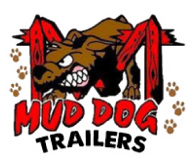Hot Water vs. Cold Water: What Pressure Washing Businesses Need to Know
October 21, 2025

Choosing between a hot water and cold water system is one of the most important decisions you can make as a pressure washing business owner. On the surface, the machines look similar, but the difference in performance can change the jobs you win, how fast you finish them, and how much profit you make.
Whether you run a trailer-mounted rig or a portable unit, knowing when heat matters and when it doesn’t can help you deliver better results for your clients and build a stronger business. In this blog, we will cover everything you need to know, from the best water temperatures for different jobs to how to choose the system that will work best for you.
Differences Between Cold & Hot Water Pressure Washing Systems
Cold water pressure washers pump water at the temperature that comes in. Hot water systems, however, have a dedicated burner and heating coil that raise water temperatures to roughly 200 degrees before it leaves the nozzle. That heat drastically changes how cleaning works.
Hot water is able to break down grease, oil, road film, and bacteria in ways that cold water cannot. Cold water relies more on pressure and detergents. If most of your work involves dirt and mud, a cold water setup will handle it. But if you want to expand into heavy-duty or specialized cleaning, hot water can give you a real edge.
Best Types of Jobs for Cold Water Pressure Washing Systems
For routine maintenance cleaning, cold water is the everyday powerhouse. Sidewalks, driveways, patios, fences, decks, and siding come clean quickly with the right tips and a good surface cleaner. After a storm, mud, sand, and silt can be left behind on surfaces, and a cold water machine will flush that debris fast. For many residential-focused businesses, a cold water trailer or portable unit covers the majority of requests. Like we mentioned earlier, cold water cleaning comes down to the pressure. For more information, check out our blog
What PSI Should I Use for Pressure Washing?
.
Best Types of Jobs for Hot Water Pressure Washing Systems
Hot water shines when the job involves grease, oil, gum, road film, or sanitation. After floods or hurricanes, hot water helps remove oily residues and supports disinfection on hard surfaces. At commercial kitchens and restaurants, hot water cuts through animal fats around dumpster pads, drive-thrus, and exhaust areas far faster than cold water and with fewer chemicals. On concrete with mildew or algae, heat improves removal and helps kill spores on materials like brick, stone, and concrete. For heavy equipment caked in hydraulic oil and grime, hot water loosens buildup, so rinsing is faster and more thorough. Gum on sidewalks softens instantly with heat and peels away cleanly. Hot water pressure washing systems elevate the jobs you take on and your cleaning power, but they do come at a higher cost.
Cost and ROI Considerations of Hot Water Systems
Hot water systems cost more to buy and maintain. Not only do they include a burner and coil, but they also require a separate fuel source to heat the water. The payoff is faster cleaning on difficult jobs, lower chemical use, and access to contracts that often require hot water capability. Cold water systems are less expensive, simpler to maintain, and perfect for everyday dirt.
Choosing the Right System for Your Business
If your day-to-day work is homes, patios, and driveways, a cold water system is efficient and affordable. If you want to grow into commercial, industrial, or storm and flood cleanup, hot water is the upgrade that expands your service list, reduces job time, and improves results. If you are really looking to take your system to the next level, consider one of our Mud Dog Trailers portable pressure washing systems or contact us with any questions, and we will help you build the system that fits your goals.

